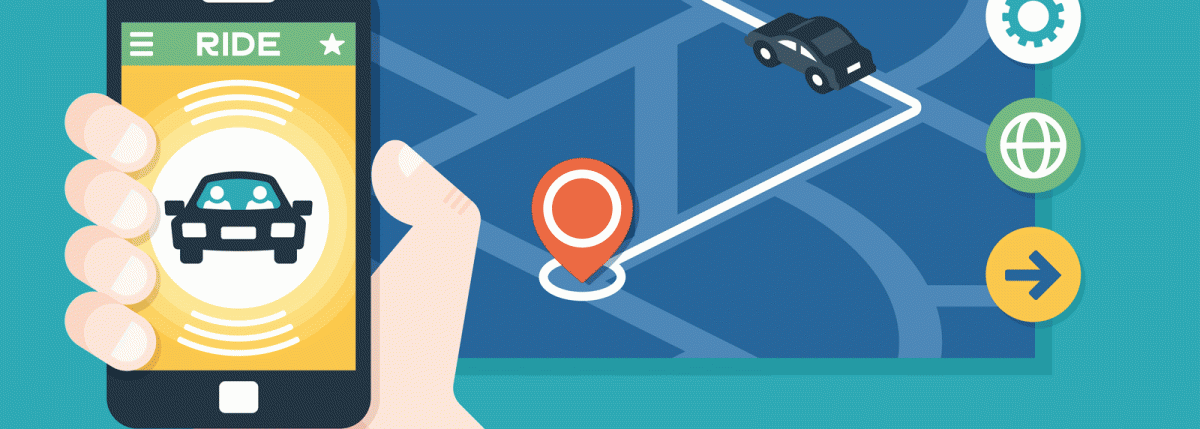Brad Greenwood
The inspiration for his co-authored research paper, Brad Greenwood said, materialized rather organically.
“I was in the backseat of an UberX vehicle,” Greenwood said, “and I wrote myself a cell phone note: ‘Call Sunil about writing an Uber paper.’”
According to research by Greenwood and Sunil Wattal, professors at Temple University’s Fox School of Business, the introduction of UberX, a low-cost, ride-sharing service, has led to the reduction of alcohol-related vehicular fatalities in California.
Their research findings have been featured widely in mainstream national and international media outlets, including Newsweek, Fox News, Forbes, Canada’s Globe and Mail, Britain’s Daily Mail, Quebec’s La Presse, the Washington Post, the Los Angeles Times, Tech Times, and others. Their working paper, titled, “Show Me The Way To Go Home: An Empirical Investigation of Ride Sharing and Alcohol Related Motor Vehicle Homicide,” is under review for publication in an academic journal.
Uber is a mobile-app-based service through which consumers can call for transportation to and from any destination. The system requires credit card registration prior to usage, which means no physical money changes hands in the transaction. Available in more than 50 countries, Uber’s popularity has soared recently, and an August 2015 report from Reuters suggests that Uber’s bookings in 2016 could exceed $26 billion.
Greenwood and Wattal are believed to have written the first academic paper investigating the effects of Uber on reducing alcohol-related vehicular homicides.
“The issue is timely and fresh. Everyone is talking about Uber,” said Wattal, an Associate Professor of Management Information Systems (MIS) at Fox.
 “There was evidence that Uber could be linked to such decreases in fatalities, but the question as to whether it could be tied together rigorously, and under certain circumstances, wasn’t yet known,” said Greenwood, an Assistant Professor of MIS.
“There was evidence that Uber could be linked to such decreases in fatalities, but the question as to whether it could be tied together rigorously, and under certain circumstances, wasn’t yet known,” said Greenwood, an Assistant Professor of MIS.
Using publicly available data obtained from the California Highway Patrol’s Statewide Integrated Traffic Report System, for a period between January 2009 and September 2014, Greenwood and Wattal analyzed reports that included the blood-alcohol content of the driver, contributing factors like weather, speed, and environmental factors, and the number of parties involved in the accidents. Greenwood and Wattal said they chose to review California’s data because Uber is headquartered in San Francisco, and the ride-sharing service has been available in that state longer than in any other.
In their research, they found that alcohol-related deaths decreased by an average of 3.6-5.6 percent in cities where UberX service, the least-expensive service offered by Uber, is available. They also found limited evidence of change in conjunction with the use of Uber Black, the most-expensive service, which requires a luxury vehicle.
Other findings from the co-authored research paper include:
- The effects of UberX on the number of alcohol-related fatalities took hold, on average, from nine to 15 months following Uber’s introduction to a particular city, “after Uber has built up a network of customers and drivers in that marketplace,” Greenwood said.
- There was little to no effect in periods of likely surge pricing, a system that allows Uber to increase the cost of the services rendered dependent upon the consumer demand.
- There was no effect between Uber and overall deaths, indicating that the entry of Uber is not making roads more dangerous for sober people.

Sunil Wattal
For Greenwood, who has previously studied the societal benefits of technologies, and Wattal, who has researched online crowdfunding and peer-to-peer economies, their research interests overlapped, which made this project a natural choice on which they could collaborate. Unsurprisingly, their Uber research, which was independently funded, has generated requests for follow-up studies.
“We could try to replicate this study in the context of other states to see if the data is robust,” Wattal said, “but that could take considerable time, given that Uber is not available everywhere and that data is not as readily available in other states.”
“The options are endless for this type of work,” Greenwood said.

